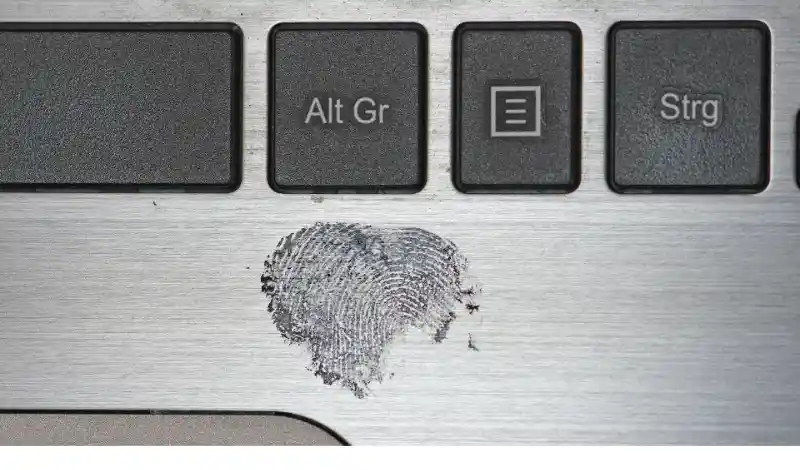Today, we’re diving deep into a topic that’s intrigued many of us: Does WhatsApp compress image, video, and audio files?
WhatsApp has become an integral part of our digital lives, a platform where we share countless images, videos, and audio files daily.
But have you ever wondered what happens to these files once you hit that send button?
Quick Answer
Indeed, WhatsApp does compress image, video, and audio files. When you send these files via the app, they are reduced to ensure smoother transmission and save storage space on both WhatsApp servers and users’ devices.
In essence, WhatsApp utilizes a compression algorithm to reduce file sizes, facilitating faster data transfer and optimizing storage usage.
Understanding File Compression: What It Means and Why It Matters
File compression is a process that reduces the size of a file. The purpose is to make data transfer more efficient, especially for larger files such as images, videos, and audio files.
If you’ve ever zipped a file on your computer, you’ve used file compression!
In the context of WhatsApp, file compression is especially significant.
It’s all about ensuring that the vast volume of data sent every second, from photos of our pets to audio messages and videos, gets to its destination quickly and efficiently.
For users, this translates into a smoother, more seamless experience when sending or receiving media files.
For WhatsApp itself, it means less strain on their servers, resulting in better performance and service delivery.
Yet, file compression is not just about making files smaller; it’s a balance. Smaller file sizes often come at the cost of some loss in quality.
Meanwhile, you might be interested in learning how your WhatsApp calls are stored. Check out our article on for more insight.WhatsApp and File Compression: How It Works
Images
When you send an image via WhatsApp, it gets compressed to make the file size smaller. Originally, if your image resolution was higher than 800×800 pixels, WhatsApp would reduce it to that resolution.
The image compression rate is approximately 60% to 80% in file size reduction. The image will get smaller dimensions and smaller file size.
Nowadays, with improved technology and increased internet speeds, WhatsApp maintains higher resolutions, but it still applies some level of compression.
Videos
Videos are also subject to compression on WhatsApp.
The platform restricts video files to a maximum size of 16 MB, which roughly equals to about 90 seconds to three minutes of footage, depending on the quality.
If your video file exceeds this limit, WhatsApp will prompt you to shorten the video before sending.
Audios
Unlike images and videos, audio files on WhatsApp undergo a different form of compression. Given that these files are typically smaller in size, they don’t require the same level of size reduction.
However, to ensure efficient transmission, WhatsApp converts audio files to Opus format, offering better compression and quality than other audio file formats.
Implications on Quality: What Happens to My Files?
Now, the question on everyone’s mind: Does compression affect the quality of your images, videos, and audio files? The answer is, to an extent, yes. But it’s a little more complex than that.
Images
When an image is compressed, it loses some of its original data – what we refer to as ‘lossy’ compression. This can lead to a reduction in the sharpness, details, and clarity of the image.
However, WhatsApp uses smart compression techniques that aim to reduce file size with minimal quality loss. So, this quality drop is typically unnoticeable unless you zoom in closely or need high-quality prints.
Videos
Video compression is similar to image compression. The application reduces the size of the video file, which can lead to a drop in the video’s resolution and frames per second.
The difference might be noticeable if the original video is in HD or 4K. But for casual sharing of videos, this usually isn’t an issue.
Audios
As mentioned earlier, audio files on WhatsApp are converted to the Opus format. This format provides a good balance between file size and audio quality.
While there is some quality loss during this conversion, it’s usually unnoticeable for voice messages or music clips.
In summary, while there’s a slight quality loss during the compression process, for most WhatsApp users, quicker transmission and less storage usage benefits far outweigh this small compromise.
Metadata and WhatsApp: What Gets Removed and Why
Another essential aspect of WhatsApp’s file handling is the removal of metadata from files uploaded to their servers. But what exactly is metadata?
Metadata can be defined as ‘data about data.’
In the context of images, videos, or audio files, this could include information such as the device used to capture the image, the location where it was taken, the time and date of capture, and even the settings used on the camera.
When you upload a file to WhatsApp, it’s not just the file that gets sent; all this associated metadata is sent as well.
WhatsApp removes certain metadata from files you send via the platform to protect your privacy and further reduce the file size.
This means when you receive a file, it’s harder (but not impossible) to trace back details about when, where, and how the file was originally created.
So, while this might make tasks like image forensics more difficult, it also helps ensure users’ privacy.
Frequently Asked Questions (FAQ)
Q1. Does WhatsApp compress all types of files?
Yes, WhatsApp compresses most types of files. This includes images, videos, and audio files.
The app reduces these files’ size to ensure they are transmitted swiftly and efficiently and to optimize storage space on both users’ devices and WhatsApp servers.
Q2. Does the compression process affect the quality of the files?
While file compression does lead to a slight reduction in quality, the impact is typically minimal and often unnoticeable to the average user.
WhatsApp uses smart compression algorithms to reduce file size with as little quality loss as possible.
Q3. What happens to the metadata of my files on WhatsApp?
When you send a file through WhatsApp, certain metadata (like location, capture date, camera settings, etc.) are removed.
This practice serves two purposes: it further reduces the file size, and it also provides a level of privacy protection to users.
Q4. Can I prevent WhatsApp from compressing my files?
Unfortunately, you cannot prevent WhatsApp from compressing files. This process is automatic and integral to how the app functions.
If you need to share high-quality files without compression, you might need to use a different method or platform.
Conclusion
In conclusion, yes, WhatsApp does compress images, videos, and audio files. This process is automatic and integral to the platform, designed to ensure efficient transmission of files and optimal use of storage space.
While there’s a slight quality reduction, the impact is often unnoticeable for the casual user.
Moreover, WhatsApp also removes certain metadata from files sent through the platform, offering users a layer of privacy protection.
Though it might make certain tasks more challenging, like image forensics, it’s a necessary step to keep user data secure.
So, the next time you send a photo or video via WhatsApp, you’ll understand what’s happening behind the scenes!
Remember, while we enjoy these incredible technologies, it’s always good to understand how they work and what they do with our data.









